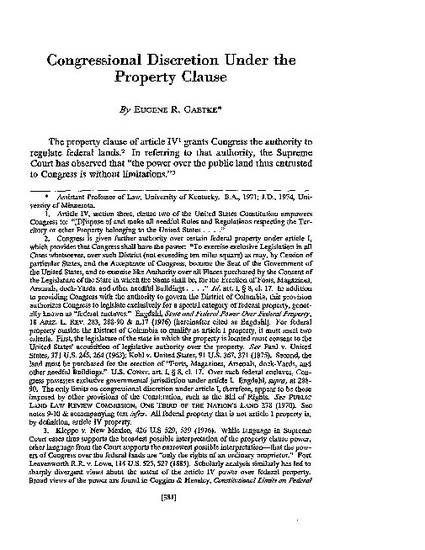
The property clause of article IV grants Congress the authority to regulate federal lands. In referring to that authority, the Supreme Court has observed that “the power over the public land thus entrusted to Congress is without limitations.”
The simplicity of the Court's statement is appealing. Its implications, however, are troubling, especially for those states in which a substantial amount of federal property exists. If the property clause power of Congress is "without limitations," the power of some states over a considerable portion of the land within their boundaries is severely limited. For those states, an unlimited property clause power in Congress significantly shifts the balance of powers struck by the federal system. The concerns engendered by a property clause power "without limitations" are further heightened because the power has been used by Congress to regulate conduct on nonfederal property as well as on federal property. Such legislation extends the reach of federal regulation solely on the congressional determination that the legislation is a "needful" rule "respecting" federal property.
No congressional power is limitless. At a minimum, each power is limited by the individual liberties protected by the Bill of Rights. The Court's assertion that the property clause power is "without limitations" could not have been intended to signify an exemption of the exercise of that power from the restraints imposed upon government elsewhere in the Constitution. Instead, the Court referred to the scope of the property clause power itself.
This Article examines the proposition that the property clause power is "without limitations." It contends that, while the property clause power may be unlimited when exercised to regulate conduct on federal lands, the use of this power to regulate conduct on nonfederal land cannot constitutionally be "without limitations." Finally, the Article suggests a balancing approach, based on a nuisance analogy, that may be useful in determining the proper scope of the property clause power over nonfederal property.

Hastings Law Journal, Vol. 33, No. 2 (November 1981), pp. 381-402